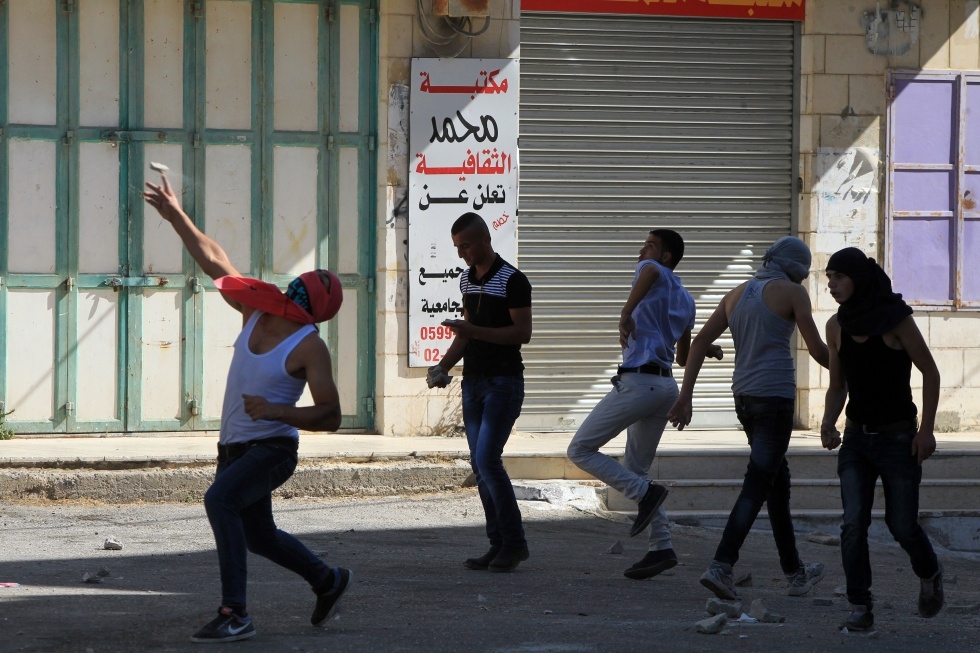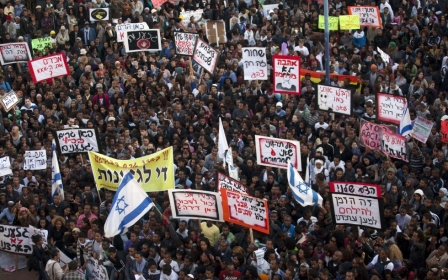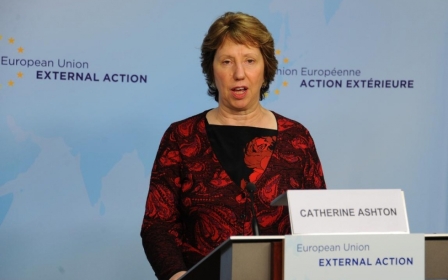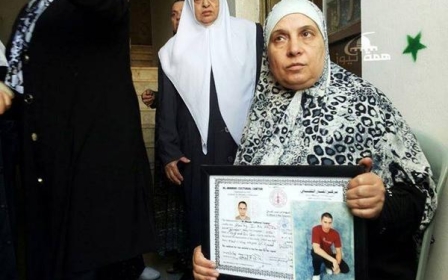Israel approves heavy jail sentences for stone-throwers as clashes continue

As clashes continued over the weekend in East Jerusalem and the West Bank, Israel’s cabinet approved an amendment to the country's penal code that will enable more severe punishment against Palestinians convicted of stone-throwing attacks.
The amendment, approved on Sunday, will allow jail sentences of up to 20 years for those convicted of throwing stones or other objects at Israeli vehicles.
"Israel is operating aggressively against terrorists, against stone throwers, against hurlers of firebombs and firecrackers," Israeli Prime Minister Benjamin Netanyahu told ministers at a meeting of the cabinet.
Netanyahu went on to say that the new legislation aims to restore what he called "peace to all parts of Jerusalem".
The new measures come as high tensions again broke into violence in East Jerusalem and the West Bank, days after Israel closed the Al-Aqsa Mosque compound following the shooting of a right-wing Israeli activist.
Two Israeli soldiers were injured on Sunday in clashes with Palestinian protesters in separate parts of the West Bank.
One soldier was wounded after protesters threw a petrol bomb at a military watchtower in Bethlehem city, an Israeli military official told the Israeli Army radio. The other soldier was injured in a petrol bomb attack in the central West Bank town of Qalandiya.
Eyewitnesses told Anadolu Agency that Israeli forces had fired teargas to disperse Palestinian protesters in Qalandiya.
Israeli authorities reopened Al-Aqsa on Friday following a day of violent clashes with Palestinian protesters, but barred male worshippers under 50 years old from entering the religious site.
For Muslims, Al-Aqsa represents the world's third holiest site. Jews refer to the area as the "Temple Mount," claiming it was the site of two Jewish temples in ancient times.
Israel occupied East Jerusalem during the 1967 Middle East War. It later annexed the holy city in 1980, claiming it as the capital of the self-proclaimed Jewish state – a move never recognized by the international community.
In September 2000, a visit to the site by then opposition leader Ariel Sharon sparked what later became known as the "Second Intifada," a popular uprising against the Israeli occupation in which thousands of Palestinians and Israelis were killed.
New MEE newsletter: Jerusalem Dispatch
Sign up to get the latest insights and analysis on Israel-Palestine, alongside Turkey Unpacked and other MEE newsletters
Middle East Eye delivers independent and unrivalled coverage and analysis of the Middle East, North Africa and beyond. To learn more about republishing this content and the associated fees, please fill out this form. More about MEE can be found here.




